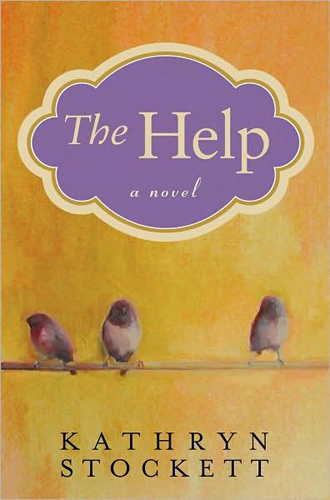Book: The Help by Kathryn Stockett
When: September 24, 2010 @ 7pm
Where: Amanda’s House
Southern whites’ guilt for not expressing gratitude to the black maids who raised them threatens to become a familiar refrain. But don’t tell Kathryn Stockett because her first novel is a nuanced variation on the theme that strikes every note with authenticity. In a page-turner that brings new resonance to the moral issues involved, she spins a story of social awakening as seen from both sides of the American racial divide.
Newly graduated from Ole Miss with a degree in English but neither an engagement ring nor a steady boyfriend, Eugenia “Skeeter” Phelan returns to her parents’ cotton farm in Jackson. Although it’s 1962, during the early years of the civil rights movement, she is largely unaware of the tensions gathering around her town.
Skeeter is in some ways an outsider. Her friends, bridge partners and fellow members of the Junior League are married. Most subscribe to the racist attitudes of the era, mistreating and despising the black maids whom they count on to raise their children. Skeeter is not racist, but she is naive and unwittingly patronizing. When her best friend makes a political issue of not allowing the “help” to use the toilets in their employers’ houses, she decides to write a book in which the community’s maids — their names disguised — talk about their experiences.
Fear of discovery and retribution at first keep the maids from complying, but a stalwart woman named Aibileen, who has raised and nurtured 17 white children, and her friend Minny, who keeps losing jobs because she talks back when insulted and abused, sign on with Skeeter’s risky project, and eventually 10 others follow.
Aibileen and Minny share the narration with Skeeter, and one of Stockett’s accomplishments is reproducing African American vernacular and racy humor without resorting to stilted dialogue. She unsparingly delineates the conditions of black servitude a century after the Civil War.
The murders of Medgar Evers and Martin Luther King Jr. are seen through African American eyes, but go largely unobserved by the white community. Meanwhile, a room “full of cake-eating, Tab-drinking, cigarette-smoking women” pretentiously plan a fundraiser for the “Poor Starving Children of Africa.” In general, Stockett doesn’t sledgehammer her ironies, though she skirts caricature with a “white trash” woman who has married into an old Jackson family. Yet even this character is portrayed with the compassion and humor that keep the novel levitating above its serious theme.
This product reviewed some basic information to keep in mind, as well as how you can find options to order remedies. But, there are companies that sell prescription drugs to customers who need them at low costs. There are drugs intended only for children. This product tell more about “cialis dosage“. Is it possible to prevent ED? This fabric tell more about the signs of erectile disfunction and “cialis dose“. Other question we are going to is “http://goodpageabout.com/cialis-side-effects.html“. Finally, erection difficulties can be an early warning sign of earnest heartiness problems, such as diabetes. Note, if you have any other questions about the matter ask your health care provider.

